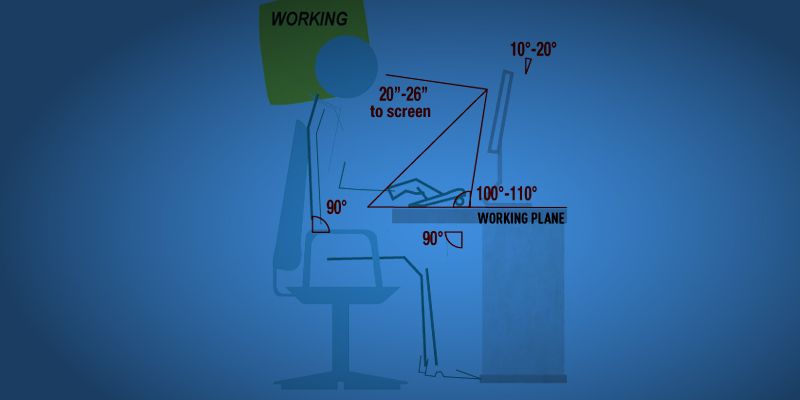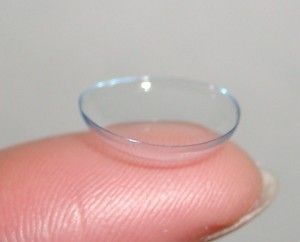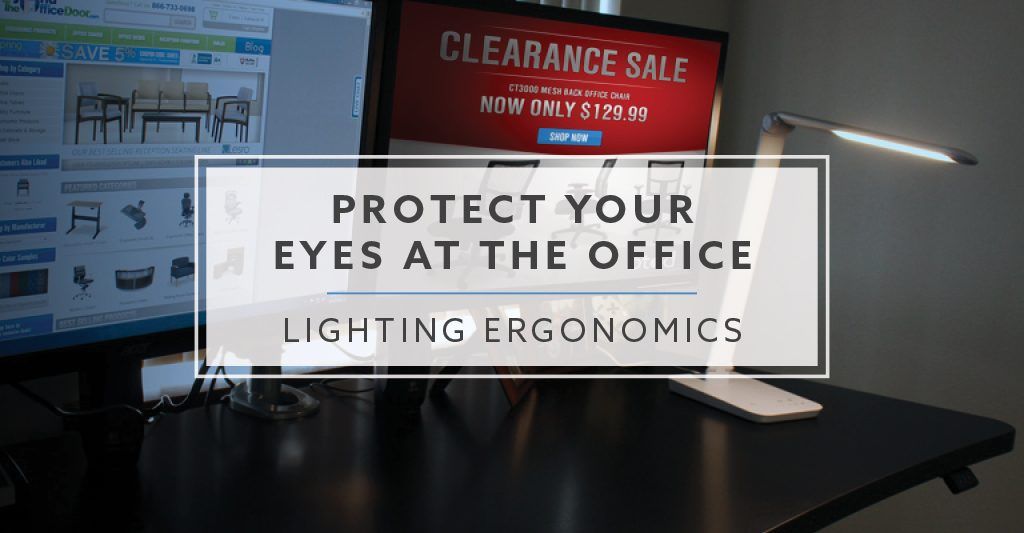If you are in an office all day and spend the majority of your time looking at a computer screen like I do, then you know how taxing this can be on your eyes… especially if you don’t have the proper lighting.
The correct amount of lighting should allow you to easily read your documents without providing glare. You will likely be able to tell right away if you are working in the wrong conditions. For example, you may not be able to see what you are working on or even worse may feel negative health effects; eye strain and irritation, dry or burning eyes, blurred vision and headaches are all indications that you may need to switch up the lighting in your work space. Plus, you may find yourself leaning in to read your monitor, which can strain your neck and shoulders. All of these health issues are a part of “Computer Vision Syndrome,” or CVS. CVS describes a group of eye and vision-related problems that result from prolonged computer, tablet, e-reader and cell phone use.
Full Disclaimer: We are an office furniture dealer and sell some of the products we review. To learn more about the products we sell, our review process and why you can trust us, please visit: Why we’re different. Who is BTOD.com and The Breakroom Blog?
How to perfect proper lighting
There are things you can do to ensure proper lighting conditions in your work space:
- Limit glare on your computer screen which can be done by adjusting your lighting or by using anti-glare filters. Just be aware that some anti-glare filters may change the quality of what you are viewing.
- Your computer monitor can also cause glare if the brightness and contrast aren’t set correctly so you want to make sure to take some time to set everything to your preference.
- Make sure to sit a safe distance from your monitor. It is recommended that you sit no less than the distance from your middle finger to your elbow away from your monitor.

- Provide light from multiple sources. Switching between your monitor and paper documents can put a strain on your eyes. To combat this, have more light on your desktop by your documents and less near your computer screen. You can also use filters to diffuse overhead lighting or dim the overhead lights in your office.
- No matter what lights you use they should be adjustable at a personal level since our eyes are all different. Plus be aware that you may need to change your lighting throughout the day as the natural light coming into your office changes.
- Never place your computer right in front of a window or directly under fluorescent lights.
- Control the natural light from your office windows by using curtains or blinds.
- When picking colors of blinds, walls or furniture in your office be sure to pick neutral colors, which should help reduce glare.
Other ways to protect your peepers
Besides adjusting the lighting in your work area there are other ways to protect your eyes:
- Give your eyes a break every few minutes by looking away from your screen. This is important because looking at objects at the same distance and angle for long amounts of time can cause eye strain. Look around for a few seconds, blink, and try to focus on some distant objects for a change. Doing this may also help fight off feelings of fatigue.

- If you wear contacts while working on your computer you may increase the symptoms of dry-eye syndrome. This is because contacts can cause friction on the eye if the surface of the eye is dry which in turn causes discomfort. If you have glasses, you may want to opt for wearing those instead.
- You also want to make sure your prescriptions for your glasses and contacts are up to date. Be sure to get regular eye exams, and who knows, you may even end up needing a separate pair of glasses specifically for computer work.
Final Thoughts
Having the proper lighting in your office is just as important as the way you sit or how you stand, so you want to make sure to make any necessary changes before your start to experience eye problems or they get any worse. Of course if you are experiencing any pain or irritation beyond what you feel is ok, you definitely want to get checked out by a health professional right away. Having the proper lighting won’t just make you feel better; it will make your work easier.
Have you experienced any ill effects from poor office lighting? What did you feel and how did you correct the issue? Do you have any tips that have worked really well in your office? We’d love to hear your ideas in the comments section!






